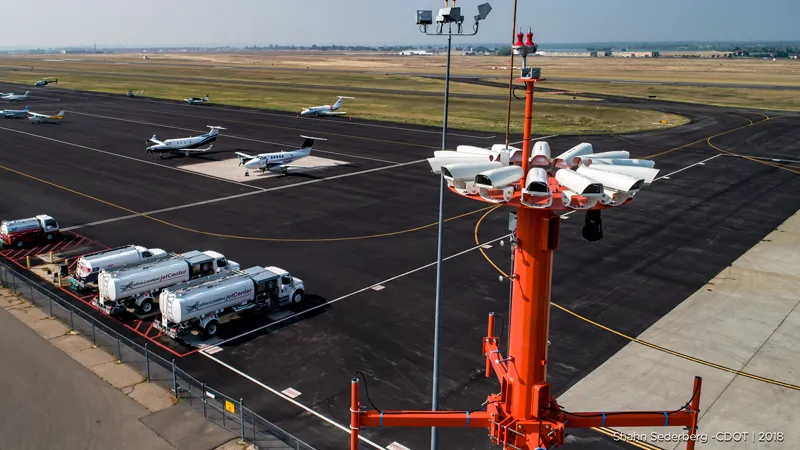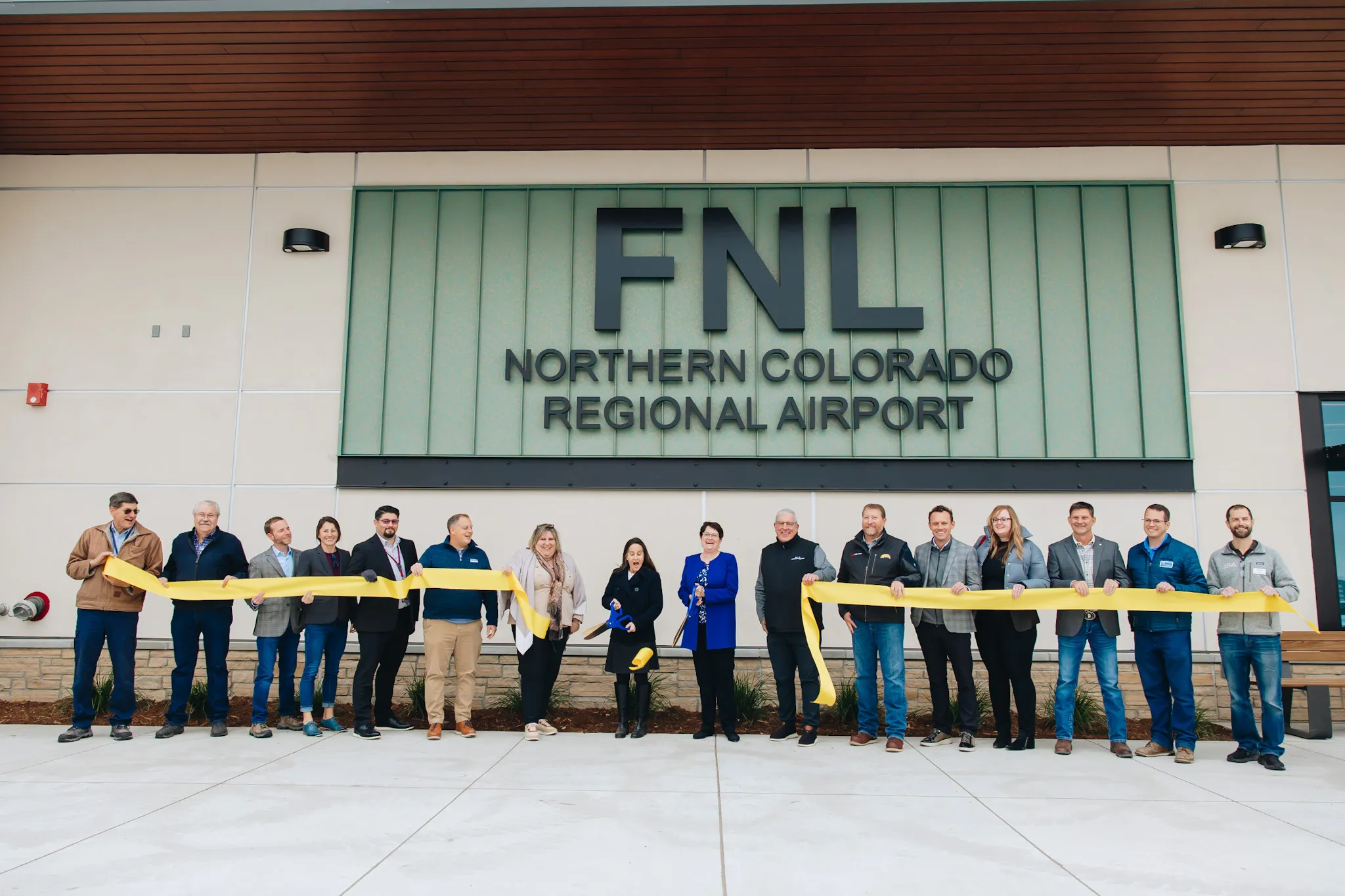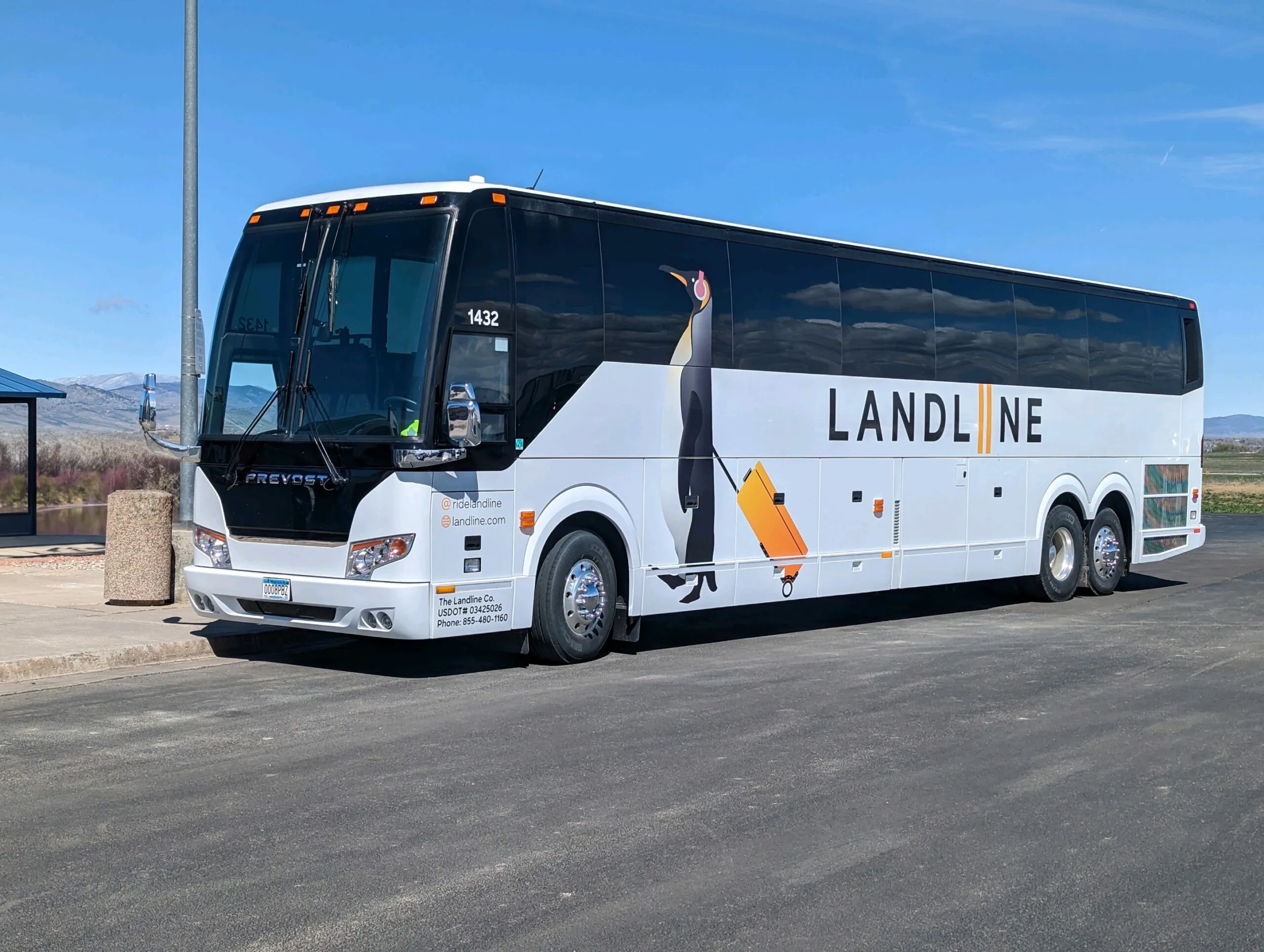Northern Colorado airport’s remote-tower developer pulls out

LOVELAND — Officials from Northern Colorado Regional Airport and the Colorado Department of Transportation are pondering their next moves after the private company that has been developing the airport’s experimental remote air-traffic control tower announced this week that it was terminating its work on the facility.
CDOT, the airport and the Federal Aviation Administration had been collaborating since 2015 on bringing the technology to the airport. Through video cameras and other sensing technologies, the remote tower is designed to emulate the operational safety and efficiency benefits of a traditional control tower at a lower cost.
However, Nepean, Ontario-based Searidge Technologies, the company that the FAA selected in 2018 to be the tower’s technology partner, “had advised us verbally late last week that they were pulling out, and that was followed up by a letter to the FAA,” said David Ulane, director of CDOT’s Aeronautics Division. “They noted that there were ongoing challenges with the FAA’s certification of remote towers.”
SPONSORED CONTENT
Ulane, who will address the airport’s governing commission at its regular monthly meeting on Thursday afternoon, said Searidge’s decision wasn’t a total surprise..”We gave briefings to the airport officials on Aug. 2 that this was one of the contingencies we said might happen,” he said.
The state is committed to resolving the issue, Ulane said, especially because it already has spent $8.8 million on the project.
Don Overcash, Loveland’s mayor pro tem who chairs the governing commission of the airport that is designated “FNL” and jointly owned by the cities of Loveland and Fort Collins, confirmed that “we’ve been aware this has been a possibility for some time.”
Both the Loveland and Fort Collins city councils on Tuesday night approved their cities’ 50% share of the airport’s 2024 operating and capital budget, at $12,494,493 each. The approvals came without discussion as part of the councils’ consent agendas.
David Ruppel, the airport’s interim director, told BizWest on Wednesday that he found out earlier this week that Searidge was leaving the project. The agenda packet for Thursday’s meeting indicates that the airport’s remote-tower project team conferred Monday with FAA officials about the situation.
“We don’t have direct talks with Searidge,” Ruppel said, adding that the airport has no information about what the FAA’s final decision will be on whether to continue the experiment.
Searidge CEO Moodie Cheikh had not returned calls seeking comment by BizWest’s afternoon deadline.
“Unfortunately, a number of circumstances have occurred that have impacted the program, including the COVID-19 pandemic and related multi-year FAA travel restrictions, as well as continually changing FAA standards for remote tower certification,” CDOT wrote in a news release issued Wednesday morning. “As a result, Searidge Technologies has advised the FAA that they will terminate work on the FNL remote tower program.
“As this transition occurs over the next several weeks, the state, FNL and the FAA will collaborate on a new path forward that preserves existing air traffic control services at FNL for the foreseeable future. During this time, future options will be evaluated for continued development of the remote tower facility at FNL as well as potential options for a traditional air traffic control tower. Significant interest exists from other remote tower technology providers to continue development at FNL, and the state and FNL will be working closely with the FAA to explore this option as the preferred alternative.”
Ulane said that “while we are disappointed to see Searidge leave the remote tower program, we remain optimistic that the cost-effective benefits of remote tower technology will have tremendous value to Colorado’s future aviation system, and we intend to vigorously support future development of the technology.”
Ulane said that given the remote tower at FNL is “the last project still functioning” in the country after a similar project was halted at Leesburg, Virginia, earlier this year, “I suspect some of those other vendors might step up.”
CDOT and the airport are hoping for more-consistent direction from the FAA, which has been without a permanent director since March 31, 2022. On Wednesday, the U.S.Senate’s Committee on Commerce, Science and Transportation unanimously approved the nomination of Michael G. Whitaker to be FAA administrator and sent it to the full Senate.
“He seems like a really sharp guy,” Ruppel said, “and he’s been supportive of the remote-tower idea.”
New visibility requirements issued by the FAA in November 2022 triggered a halt in testing at the tower while new technology could be installed to meet the new standards. The FAA then extended the stop-work order for another six months. Searidge continued to work on upgrading the technology, but apparently wasn’t getting paid for its work by the FAA during the stop-work order.
“It’s just a hard thing to start something new like that and come up with the necessary requirements,” Ruppel said. “It’s a challenging process to go through, but we’re still committed to that path as the quickest, preferred option” — especially if the airport is to soon see the return of scheduled airline service after multiple carriers suspended flights to FNL over safety issues.
“From the airport’s perspective, we’re waiting to see if another vendor comes forward, and that’s certainly our preferred path,” Ruppel said, noting that the other option is construction of a traditional control tower, which he said could take “anywhere from three to five or six years” to become operational at FNL.
“That’s one of the reasons the FAA has given us permission to do siting and environmental evaluations for a traditional tower. That’s a pretty low-cost initial effort we can do with the FAA’s support, and at least we can get that piece out of the way.”
“We’ve always needed a backup plan,” said Fort Collins Mayor Jeni Arndt, the airport commission’s newly appointed vice chair. “It’s great to be innovative, and you have to have a high tolerance for risk, but you shouldn’t take such a risk unless you have a backup plan because you’re dealing with the public and the public’s money. That’s the difference between a public operation and a private business.
“I would imagine commercial airlines need a commercial tower and radar,” she said. “Without any sort, which we haven’t had, it just seems prudent to have all the safety measures in place to build for the future.”
The commission’s regular meeting will convene at 3:30 p.m. Thursday at the airport administration building.
“FNL has a well-deserved reputation for innovation, safety, and development, and the remote tower is a great example of that focus,” Ruppel saidin a prepared statement for the CDOT news release. “The remote tower has already provided an exceptional, innovative pathway to meet the operational demands of our growing airport in a safe, cost-effective, and timely way. While this news is unfortunate, we are confident that with the FAA’s ongoing support, CDOT’s commitment to this project and our airport, as well as interest from other highly qualified vendors, we will be able to carry this effort forward.”
LOVELAND — Officials from Northern Colorado Regional Airport and the Colorado Department of Transportation are pondering their next moves after the private company that has been developing the airport’s experimental remote air-traffic control tower announced this week that it was terminating its work on the facility.
CDOT, the airport and the Federal Aviation Administration had been collaborating since 2015 on bringing the technology to the airport. Through video cameras and other sensing technologies, the remote tower is designed to emulate the operational safety and efficiency benefits of a traditional control tower at a lower cost.
However, Nepean, Ontario-based Searidge Technologies, the company…





